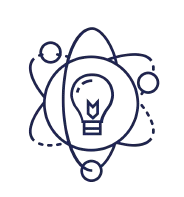Available Research Projects
Welcome to our available Research Projects Here, we aim to enhance scientific research by providing opportunities for researchers to contribute to specialized projects in the field of Computational Analysis. We strive to make this platform a secure and efficient environment for knowledge exchange and the production of high-quality research.
Project 1: A-431 Cell Line (Skin Cancer)
- Requirements: Prepare 6 nanomaterials with 3 proteins. Perform Docking, Toxicity, ADME, DFT, MD (highest value).
Completed Work: TEM, SEM, DLS, Zeta Potential, XRD for nanomaterials; Cell Line tests on A-431 cells.
Duration: 2 months for computational analysis.
Deliverables: Research ready for journal submission.
How to Apply: Submit your CV and a brief work plan to the button of the join as a researcher with the subject line: Application for Project 1: A-431 Cell Line.
Project 2: A-549 Cell Line (Lung Cancer)
- Requirements: Prepare 6 nanomaterials with 3 proteins. Perform Docking, Toxicity, ADME, DFT, MD (highest value).
Completed Work: TEM, SEM, DLS, Zeta Potential, XRD for nanomaterials; Cell Line tests on A-549 cells.
Duration: 2 months.
Deliverables: Research ready for journal submission.
How to Apply: Submit your CV and a brief work plan to [email address] with the subject line: Application for Project 2: A-549 Cell Line.
Project 3: CACO2 Cell Line (Colon Cancer)
- Requirements: Prepare 6 nanomaterials with 3 proteins. Perform Docking, Toxicity, ADME, DFT, MD (highest value).
Completed Work: TEM, SEM, DLS, Zeta Potential, XRD for nanomaterials; Cell Line tests on CACO2 cells.
Duration: 2 months.
Deliverables: Research ready for journal submission.
How to Apply: Submit your CV and a brief work plan to [email address] with the subject line: Application for Project 3: CACO2 Cell Line.
Project 4: HELA Cell Line (Cervical Cancer)
- Requirements: Prepare 6 nanomaterials with 3 proteins. Perform Docking, Toxicity, ADME, DFT, MD (highest value).
Completed Work: TEM, SEM, DLS, Zeta Potential, XRD for nanomaterials; Cell Line tests on HELA cells.
Duration: 2 months.
Deliverables: Research ready for journal submission.
How to Apply: Submit your CV and a brief work plan to [email address] with the subject line: Application for Project 4: HELA Cell Line.
Project 5: HEP-2 Cell Line (Liver Cancer)
- Requirements: Prepare 6 nanomaterials with 3 proteins. Perform Docking, Toxicity, ADME, DFT, MD (highest value).
- Completed Work: TEM, SEM, DLS, Zeta Potential, XRD for nanomaterials; Cell Line tests on HEP-2 cells.
- Duration: 2 months.
- Deliverables: Research ready for journal submission.
- How to Apply: Submit your CV and a brief work plan to [email address] with the subject line: Application for Project 5: HEP-2 Cell Line.
Project 6: HepG-2 Cell Line (Liver Cancer)
- Requirements: Prepare 6 nanomaterials with 3 proteins. Perform Docking, Toxicity, ADME, DFT, MD (highest value).
Completed Work: TEM, SEM, DLS, Zeta Potential, XRD for nanomaterials; Cell Line tests on HepG-2 cells.
Duration: 2 months.
Deliverables: Research ready for journal submission.
How to Apply: Submit your CV and a brief work plan to [email address] with the subject line: Application for Project 6: HepG-2 Cell Line.
Project 7: MCF-7 Cell Line (Breast Cancer)
Requirements: Prepare 6 nanomaterials with 3 proteins. Perform Docking, Toxicity, ADME, DFT, MD (highest value).
Completed Work: TEM, SEM, DLS, Zeta Potential, XRD for nanomaterials; Cell Line tests on MCF-7 cells.
Duration: 2 months.
Deliverables: Research ready for journal submission.
How to Apply: Submit your CV and a brief work plan to [email address] with the subject line: Application for Project 7: MCF-7 Cell Line.
Project 8: Panc-1 Cell Line (Pancreatic Cancer)
Requirements: Prepare 6 nanomaterials with 3 proteins. Perform Docking, Toxicity, ADME, DFT, MD (highest value).
Completed Work: TEM, SEM, DLS, Zeta Potential, XRD for nanomaterials; Cell Line tests on Panc-1 cells.
Duration: 2 months.
Deliverables: Research ready for journal submission.
How to Apply: Submit your CV and a brief work plan to [email address] with the subject line: Application for Project 8: Panc-1 Cell Line.
Project 9: PC-3 Cell Line (Prostate Cancer)
- Requirements: Prepare 6 nanomaterials with 3 proteins. Perform Docking, Toxicity, ADME, DFT, MD (highest value).
- Completed Work: TEM, SEM, DLS, Zeta Potential, XRD for nanomaterials; Cell Line tests on PC-3 cells.
- Duration: 2 months.
- Deliverables: Research ready for journal submission.
- How to Apply: Submit your CV and a brief work plan to [email address] with the subject line: Application for Project 9: PC-3 Cell Line.
Project 10: RD Cell Line (Muscle Cancer)
Requirements: Prepare 6 nanomaterials with 3 proteins. Perform Docking, Toxicity, ADME, DFT, MD (highest value).
Completed Work: TEM, SEM, DLS, Zeta Potential, XRD for nanomaterials; Cell Line tests on RD cells.
Duration: 2 months.
Deliverables: Research ready for journal submission.
How to Apply: Submit your CV and a brief work plan to [email address] with the subject line: Application for Project 10: RD Cell Line.










